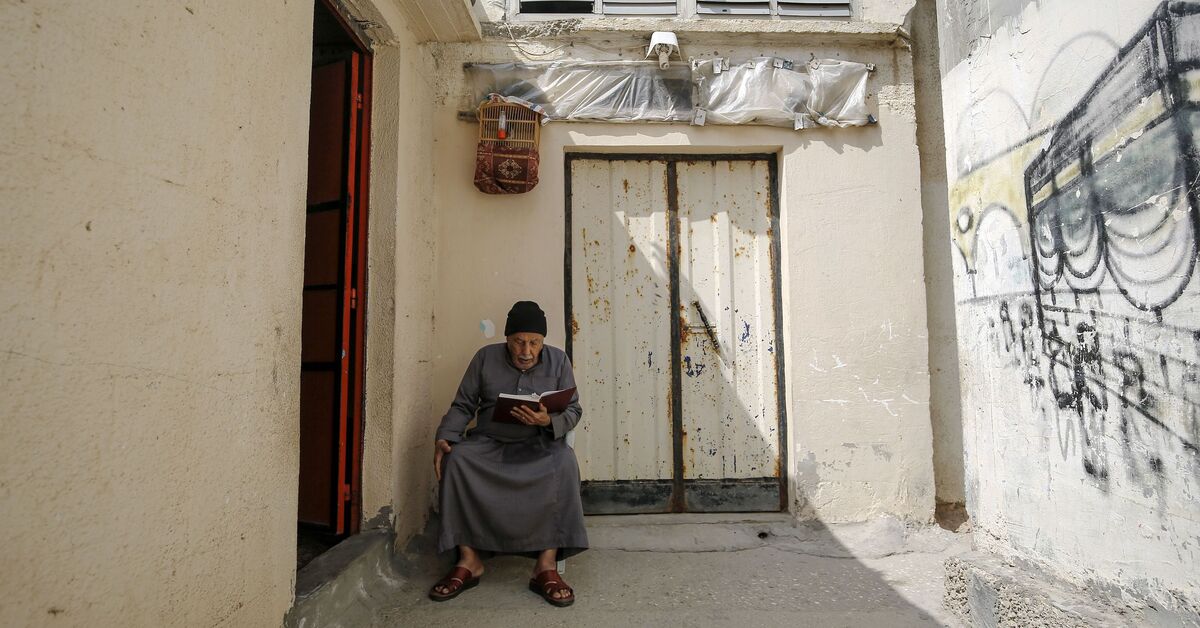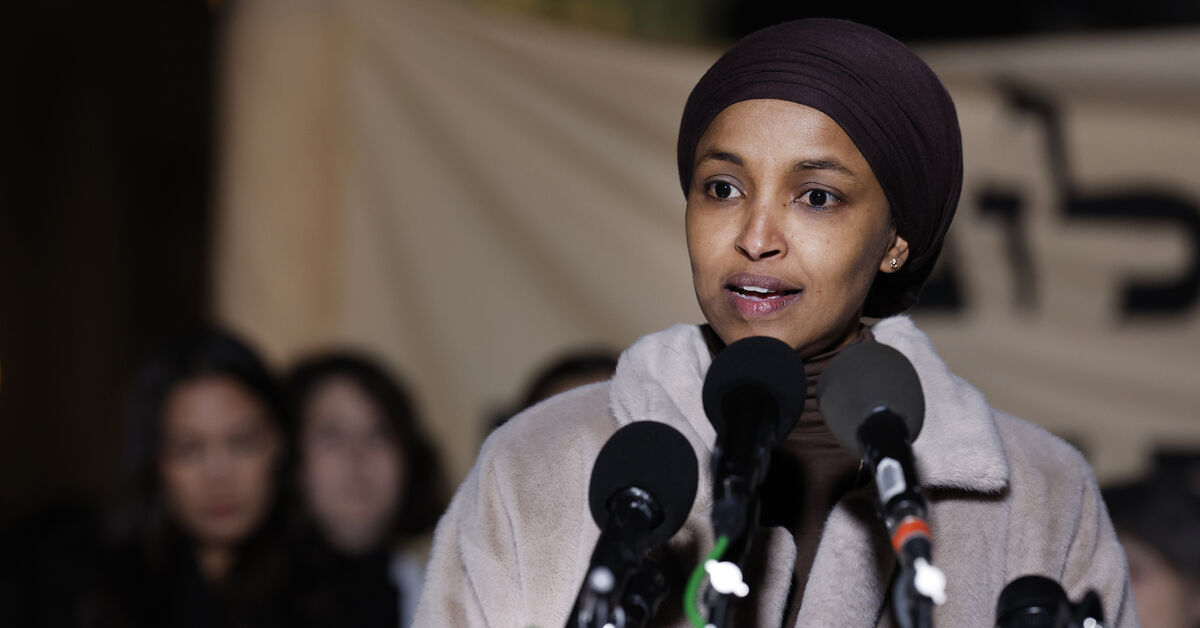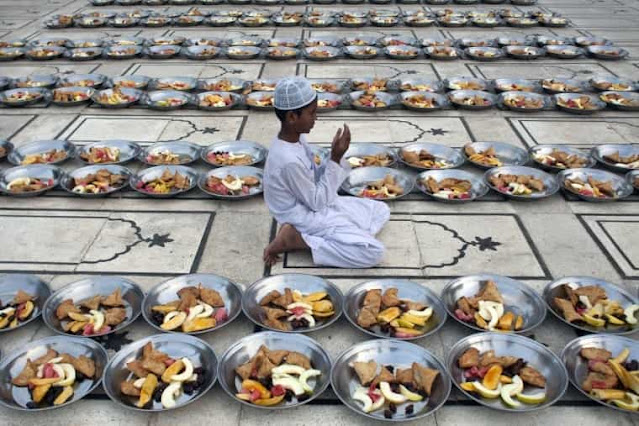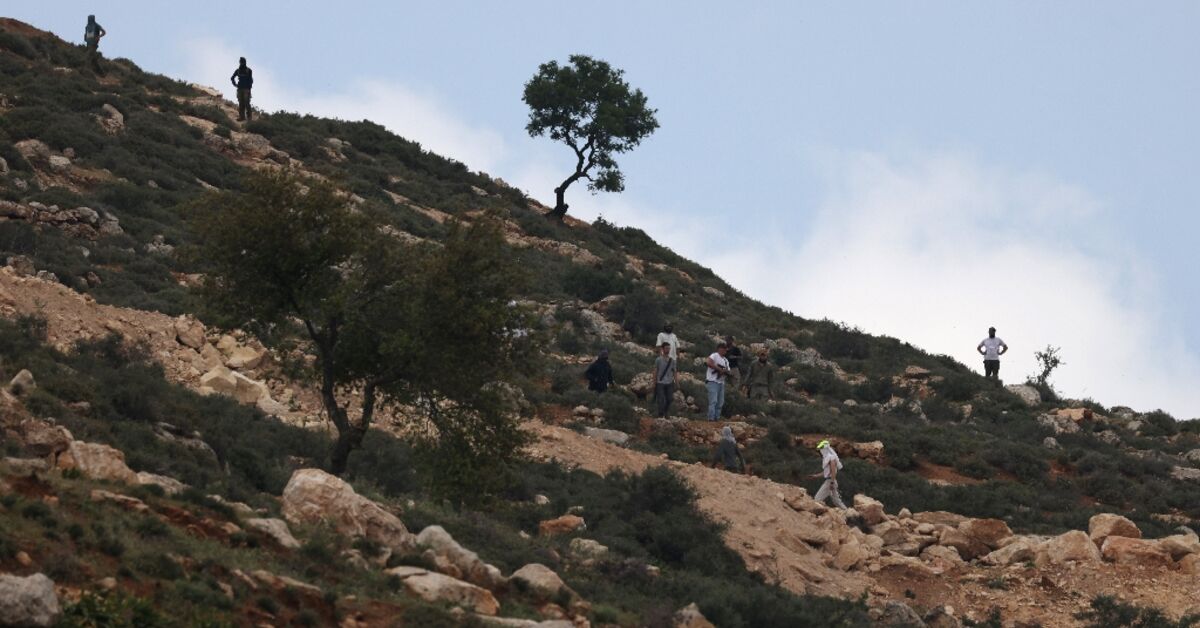
GAZA CITY, Gaza Strip — Many Palestinians take their conflicts and long-standing disputes to tribal courts, that are recognized for shifting rapidly to subject rulings. The official court docket system usually takes for much longer, typically years, to resolve on a case.
Neighborhood elders, dignitaries and the heads of households occupy a casual however outstanding place within the tribal judiciary system, which settles disputes between people and households in circumstances and complaints starting from verbal abuse to homicide.
In 1979, the Palestinian National Council in Amman established the General Directorate of Tribal Affairs and Conciliation. In 2005, the directorate was positioned below the Palestinian Ministry of Inside to coordinate between the ministry and the members of the tribal judiciary.
Tribal courts embrace arbitrators, who’ve intensive data of tribal legal guidelines and play the function of choose. An elder represents a household that’s get together to the battle, and conciliators try and resolve the dispute peacefully and stop the events from searching for revenge. Every household holds elections frequently to decide on an elder to symbolize them in court docket if wanted.
Nonetheless, the tribal judiciary can also be recognized for harsh penalties which will have an effect on not solely the perpetrator of the assault or crime, however all members of his or her household. A number of the tribal courts’ punishments are so extreme that activists typically describe them as a type of collective punishment in violation of human rights.
Forced relocation, for instance, removes all members of the family of an aggressor from the world in an effort to keep away from friction between them and the sufferer’s tribe.
The tribal judiciary additionally provides the sufferer’s household time to vent their anger for a interval of three days, throughout which violence and arson are frequent.
On Oct. 10, the Hebron-based Palestinian Association for Empowerment and Local Development held a workshop on tribal justice and human rights. The contributors — native rights activists, arbitrators, conciliators, members of civil establishments and representatives from the Hebron municipality — known as for an finish to tribal rulings that disregard civil values and civil regulation. Members additionally burdened the necessity for the tribal judicial system to honor women’s rights.
One other workshop was organized by the Ministry of Inside within the Gaza Strip on Oct. 6 to debate Sharia-based and authorized procedures in circumstances of homicide. The contributors beneficial eliminating tribal punishments equivalent to blood revenge.
This workshop was attended by the undersecretary of Gaza’s Ministry of Inside and Nationwide Safety, Maj. Gen. Nasser Mosleh, in addition to his assistant Sami Nofal and the director of the safety forces in Gaza Maj. Gen. Mahmoud Abu Watfa, along with quite a lot of elders and dignitaries within the Gaza Strip.
Baha Matar, probably the most outstanding tribal arbitrators within the Gaza Strip, instructed Al-Monitor, “The rulings and punishments of the tribal judiciary are very totally different from the rulings issued by the common courts, which normally contain imprisonment or fines.”
He added, “Tribal courts don’t subject imprisonment sentences. Often the aggressor is compelled to pay exorbitant sums of cash to the sufferer [or victim’s family] to settle the dispute between them.”
Matar elaborated, “Tribal courts, for instance, would power the aggressor to pay the sufferer a sum of 1,000 Jordanian dinars (about $1,400) for every step he took from his house to the sufferer’s home. This implies the aggressor may be compelled to pay hundreds of {dollars} even if the assault was only a slap within the face.”
In circumstances of homicide, he stated, the tribal courts require retribution. “Even when the sufferer’s household decides to pardon the aggressor, the latter nonetheless has to pay the household blood cash, which may attain 35,000 Jordanian dinars [about $50,000], to ensure that the dispute to be resolved.”
The deputy director-general of the Basic Division of Tribal Affairs on the Ministry of Inside in Gaza, Alaa al-Din al-Aklouk, urged tribal arbitrators to not inflict exorbitant tribal penalties, particularly in terms of unintentional killings.
Aklouk instructed Al-Monitor that “unjust tribal rulings, equivalent to compelled relocation or burning the houses of the aggressor’s household,” are “unacceptable.”
“The Ministry of Inside respects and acknowledges the rulings of tribal courts. However it doesn’t agree with some rulings which are thought of harsh, equivalent to compelled deportation or burning the properties of the aggressor’s household.” He stated that the Ministry of Inside rejects these practices and known as on tribal arbitrators and elders to not apply punishments that violate human rights.
A program known as Sawasya II was created in partnership between the Palestinian Ministry of Justice and the United Nations Growth Program, the United Nations Entity for Gender Equality and the Empowerment of Girls and the United Nations Kids’s Fund. This system goals to advertise justice and human rights in Palestine by advancing the rule of regulation.
Program coordinator Mamoun Atili instructed Al-Monitor, “Though tribal justice is a long and rigid tradition, efforts have to be exerted to develop this technique to be extra suitable with the civil rights system in Palestine, extra in compliance with human rights charters and in keeping with the Palestinian Fundamental Legislation.”
Atili known as on the official judicial system to work towards the tough rulings issued by the tribal judiciary. He burdened the necessity for the chief, judicial and legislative authorities in Palestine to take a transparent place on tribal practices equivalent to compelled relocation.
“Coaching on human rights and civil values in keeping with the Palestinian Fundamental Legislation needs to be supplied to the leaders of the tribal judiciary, equivalent to conciliators and arbitrators,” he stated.
Matar expressed doubt that the efforts of civil and official establishments to amend the tribal judiciary legal guidelines would bear fruit. He stated, “The customs of the tribal judiciary are sacred. They’ve been handed down by way of generations. Amending these legal guidelines is like demolishing a sacred archaeological place.”



